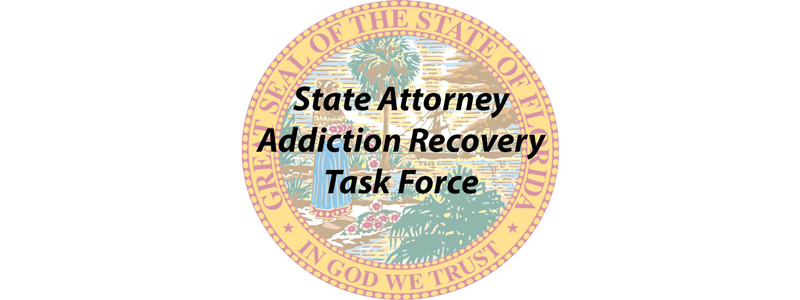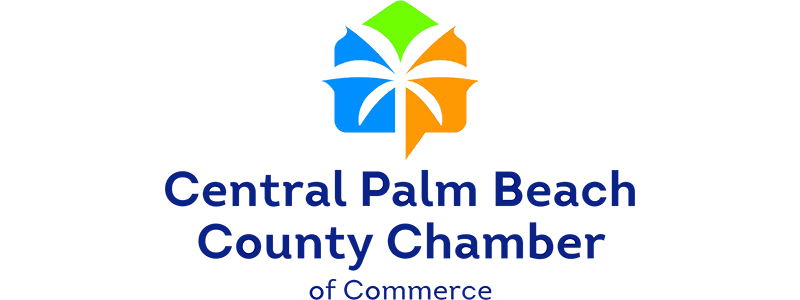instantvob’s Exceptional Practice Management Systems: Empower Your Healthcare Practice & Boost Efficiency
What Do We Mean by Practice Management Systems?
Practice management systems are software tools used by healthcare professionals to manage various aspects of their practice efficiently.
These systems allow healthcare providers to streamline administrative tasks, such as:1
- Appointment scheduling
- Billing
- Claims Management
- Patient records management
In the US, administrative costs account for approximately 25% of total healthcare expenditures. They can reach as high as $1 trillion annually.
By implementing practice management systems, providers can significantly reduce these costs.2

What Are the Advantages of Using a Practice Management System?
Practice management systems offer many advantages that can greatly benefit healthcare providers. With practice management systems, healthcare providers can easily manage patient information. They can store medical history, allergies, medications, and test results in a secure electronic format.
Practice management systems offer secure messaging and intra-office communication tools. Providers can easily communicate with staff members, share updates, and coordinate patient care. Better communication and coordination lead to improved care and patient satisfaction.
The cost of billing and insurance-related tasks for each patient can range from $20 to $215 on average. Practice management systems simplify claims management and reduce costs.3
What Are the Benefits of Practice Management Systems for Medical Professionals?
Practice management systems offer a range of benefits that can greatly aid healthcare providers. Below are some important points to consider in this regard:
Improved Workflow Efficiency
Practice management systems help make work easier by handling administrative tasks. They can schedule appointments, register patients, and handle billing. This means less paperwork and more time for patient care.
Enhanced Patient Satisfaction
Using a practice management system can make patients happier. These systems help schedule appointments quickly, reducing waiting times. They also send reminders to patients, helping them remember their appointments.
Accurate Documentation and Information Accessibility
Practice management systems keep accurate and up-to-date patient records. Healthcare providers can store important information in a secure digital format.
This makes it easy to find the desired information and make informed decisions about patient care.
Get Paid Faster
With practice management systems, billing and reimbursement become quicker and more efficient. Insurance companies can receive electronic invoices directly from providers.
These systems can also check if patients have insurance coverage. By managing claims efficiently, healthcare providers can improve cash flow and revenue.
Improved Compliance and Data Security
Practice management systems help providers comply with privacy and security rules. They have safeguards to protect patient data and keep it confidential.
These systems ensure that electronic health records are stored securely, reducing the risk of breaches.
How Can Practice Management Systems Benefit Patients?
A practice management system can improve patients’ experience in many ways. Here are some important points to remember:
Easy Appointment Booking
Efficient appointment scheduling is essential for patients to access timely healthcare services. With a practice management system, providers can offer easy appointment booking options.
In this way, they allow patients to schedule appointments at their convenience.
Reduced Waiting Time
Waiting in healthcare facilities can be stressful and frustrating for patients. Management systems enable providers to optimize patient flow.
These systems can streamline the patient journey by automating the following:
- Admissions
- Triage processes
- Patient intake forms
Access to Medical Records
Practice management systems store patient records electronically, making them easy to access. This means providers have important information, like medical history, at their fingertips. This helps them make informed decisions about patient care.
Accurate Eligibility Verification
Practice management systems help verify if patients are eligible for specific healthcare services. They do this quickly and in real-time. This ensures that patients meet the requirements for their treatments, avoiding delays or denials of care.
Streamlined Claims Management
Practice management systems streamline the claims management process for patients. These systems help healthcare providers submit claims electronically to insurance companies. By automating this process, patients experience faster claim processing and reimbursement.
Efficient Insurance Coordination
Practice management systems help patients with multiple insurance plans. They handle the coordination of benefits, ensuring patients get the most coverage possible. This reduces out-of-pocket costs and simplifies billing.
Enhanced Claim Accuracy
Practice management systems help ensure accurate claims submission for patients. These systems have built-in checks to validate the coding accuracy and completeness of claim information.
What Are the Key Features and Functionalities Offered by Practice Management Systems?
Management systems offer various features that can enhance efficiency and productivity. Let’s explore these key features in detail:
- Efficient Appointment Scheduling: Practice management systems make it easy to schedule patient appointments. Medical professionals can quickly check availability and choose suitable time slots. This reduces waiting times and keeps the workflow smooth.
- Streamlined Patient Registration and Management: Practice management systems simplify patient registration and management. Medical professionals can easily collect and store patient information, like demographics and medical history. This eliminates paperwork and ensures accurate records.
- Integration with Electronic Health Records (EHR): Management systems integrate electronic health records (EHR). This allows medical professionals to access and update patient records digitally. EHRs show medical history, medications, allergies, and test results, which helps make better decisions and coordinate care.
- Billing and Claims Management: Practice management systems offer robust billing and claim management features. They reduce the administrative burden associated with medical billing. These systems automate the billing process by generating invoices, tracking payments, and managing claims electronically.
- Reporting and Analytics: Practice management systems have features for reporting and analytics. These tools create reports on finances, appointments, and patient demographics. Reports give important information to medical professionals in an organized way.
- Secure Communication and Messaging: Some practice management systems have secure communication and messaging tools. Effective communication through secure messaging helps professionals work better together. This helps them make decisions faster and give better care to patients.
In What Ways Can Practice Management Systems Streamline Administrative Tasks and Workflows in Medical Practice?
PMS can make administrative tasks in medical practice easier, saving time and money. Here are some important points to consider:
Reduced Staff Workload
PMS reduces the work for staff by automating tasks. This means less time spent on manual work, like scheduling appointments and managing paperwork. Staff can focus more on taking care of patients.
Minimal Paperwork
PMS reduces the need for paper files. Patient information, like medical history and insurance details, can be stored electronically. This saves time and is better for the environment.
Improved Profitability
By making things more efficient, practice management systems can make a medical practice more profitable. They help with tasks like scheduling appointments and billing. This means fewer errors and faster reimbursements, leading to more money for the practice.
Timely Care
PMS helps patients get care on time. They send reminders for appointments and make registration faster. This means less waiting for patients and fewer missed opportunities for treatment.
Enhanced Revenue Cycle Management
PMS makes managing money easier. They help check insurance, submit claims, and process payments. This means getting paid faster and avoiding problems with money.4
Cost Savings
Using practice management systems can save money. Less paperwork means spending less on things like printing and storage. Being more efficient also means using resources better, which saves money too.
How Do Practice Management Systems Improve Patient Experience and Care?
PMS is vital in improving the patient experience and quality of care provided. Let’s explore how these systems do so:
Appointment Scheduling
With PMS, scheduling appointments becomes easier and faster.
- Easy Booking: Providers can quickly schedule appointments with just a few clicks. Patients can choose a convenient time, reducing waiting times and making them happier.
- Real-Time Availability: Patients can see when healthcare providers are available in real-time. This helps them pick a time that works best for them without back-and-forth communication.
- Reminders: Patients receive automated reminders through texts, emails, or calls. This reduces missed appointments and helps them remember their scheduled visits.
Patient Record Management
PMS helps healthcare providers keep patient records organized through:
- Centralized Storage: All patient records are stored in one place. Healthcare providers can easily find and update information this way.
- Streamlined Documentation: Healthcare providers can easily document visits, tests, and treatments.
- Secure and Private: Patient records are kept secure and private. Only authorized healthcare providers can access them, keeping sensitive information safe.
Communication Between Healthcare Providers and Patients
Practice management systems make communication between healthcare providers and patients easier via:
- Secure Messaging: Patients can send secure messages to healthcare providers. This allows them to ask questions or provide updates without needing an in-person visit.
- Quick Responses: Healthcare providers respond to patient messages promptly. This helps patients get the information they need quickly and improves their satisfaction.
- Access to Test Results: Patients can view their test results online, giving them timely information for their peace of mind and decision-making.
How Do Practice Management Systems Enable Better Appointment Scheduling, Record Management, and Communication Between Healthcare Providers and Patients?
When choosing a practice management system for your healthcare facility, there are important things to think about. Let’s explore these considerations:
Identify Your Needs
First, figure out what your facility needs. Not every software system will have every feature you need.
Decide on the essential features you need, including the following:
- Appointment scheduling
- Billing
- Patient records
Ease of Use
Make sure the practice management system is easy to use. The interface should be simple and easy to understand. Look for systems that offer training and support to help you learn and use the system.5
Scalability and Integration
Consider if the system can grow with your facility. As your practice gets bigger, the system should be able to handle more work. It should also work well with other software you already use, like electronic health record systems.
Security and Compliance
Keep patient information safe and follow the rules. The system should protect patient data and follow privacy laws. This way, you can keep patient information private and avoid legal problems.
Vendor Reputation and Support
Check the reputation of the system’s vendor. Read reviews and see what other healthcare providers think. Ensure the vendor offers good customer support, so you can get help if needed.
Cost and Return on Investment
Consider the cost of the system and what you’ll get in return. Look at the setup fees, ongoing costs, and any extra charges. Think about the time and money you’ll save by using the system and how it will improve your practice.

What Makes instantvob® a Highly Reliable Practice Management System?
instantvob® is a highly reliable practice management system that offers many benefits. When it comes to practice management systems, we make it super simple for you. Our website is designed to provide a hassle-free experience.
With instantvob®, healthcare providers can quickly check patient insurance benefits in real-time. This saves time and gives accurate information for better patient care. The system connects directly with insurance companies, offering immediate access to benefit details.
HIPAA Compliant and Fair Pricing
Security and privacy are important in healthcare. instantvob® prioritizes patient data security and follows HIPAA regulations. The system uses advanced security measures to protect patient information from breaches.
instantvob® offers fair and transparent pricing for healthcare providers. The pricing is designed to fit different-sized practices, so it’s affordable for everyone. This allows healthcare providers to access the system’s benefits without breaking their budget.
Contact Us Today
instantvob® runs on a reliable cloud-based platform hosted on Amazon Web Services (AWS). This means it’s always available and can handle many users. Healthcare providers can access the system from anywhere without worrying about downtime.
instantvob® allows patients to check their insurance benefits anytime, day or night. They don’t have to wait for office hours to know their coverage. This convenient feature improves patient satisfaction and reduces delays in planning treatment.
Don’t hesitate to give us a call! Our expert support team is available round the clock to help you kickstart your journey.
Resources
Table of Contents
Learn More About How instantvob® Can Help You Get the Most Out of Healthcare
Reach out to find out how you can optimize patient admissions with an Instant Verification of Benefits today. We’re here to make your life more efficient.





